Indonesia Clean Energy Forum (ICEF)
Constructive, fact-based dialog platform. Enhance understanding of energy transition and best practices in policy, regulatory and institutional frameworks to support a just energy transition in Indonesia’s power sector.
Indonesia has an opportunity to join the wave of energy transition towards low-carbon energy systems that is taking place globally. Recent trends of decarbonization, decentralization, digitalization and democratization of the current energy system provide an opportunity for the country to build a cleaner, more resilient, cost-effective and more secure energy system, and avoid the risk of stranded assets from existing infrastructure in the near future.
On the other hand, current trends can bring threats to existing power systems if they fail to be properly addressed. The falling costs of wind and solar technologies, plus the decreasing costs of energy storage, have made these technologies more cost-effective in generating electricity for conventional power plants. Advances in these technologies could pose a serious threat to the conventional business model of the power generation industry. As clean energy technologies become affordable to consumers and easy to distribute, this phenomenon could change the centralized and monopolistic structure of existing power supply systems, potentially leading to stranded assets that could cause financial disasters and threaten energy security.
We, the Institute for Essential Services Reform (IESR), believe that the opportunities and threats of 4D need to be anticipated and properly addressed through policy and regulatory reforms, improving medium- and long-term planning towards low-carbon power systems, reforming the power sector industry, and adjusting utility business models, as well as promoting stronger private sector investment.
However, such transformational change requires political consensus from various stakeholders in the energy sector. This can be achieved through better knowledge and understanding from policymakers and stakeholders on current trends and their consequences for Indonesia’s power sector. Policymakers need to make informed decisions that are accurate, based on science and facts, and take into account the realities of the political economy.
For this reason, IESR initiated the establishment of the Indonesia Clean Energy Forum (ICEF) since late 2017. ICEF is a constructive and fact-based dialog platform to improve understanding of the energy transition and share best practices in policy, regulatory and institutional frameworks to support a just energy transition in Indonesia’s power sector. ICEF’s core members consist of 25 prominent individuals from various backgrounds: state agencies, utilities, businesses, think-tanks, as well as experts.
ICEF meets regularly to discuss policy issues with Chatham House Rules and offer recommendations to policymakers. In addition to ICEF discussions, there is also an annual event, as part of ICEF activities, called The Indonesia Energy Transition Dialogue (IETD).
IETD is organized to share ideas and knowledge, and build understanding on energy transition to a wider range of stakeholders. The inaugural ICEF and IETDF in 2018 was launched and opened by Mr. Ignasius Jonan, Minister of the Ministry of Energy and Mineral Resources, on November 15, 2018.
The purpose of ICEF:
- A multi-stakeholder forum with membership limited to 25 people, consisting of leading figures in the energy sector in Indonesia
- As a medium to share and discuss objective and innovative ideas in transforming Indonesia’s energy system and adapting to potential disruptions in the future
- Organizing the annual Indonesia Energy Transition Dialogue (IETD) event
- Hold regular closed-door meetings and discussions, under Chatham House rules, based on facts and research and produce brief recommendations to key stakeholders.
With 25 members, ICEF has a wide range of experts working as high-ranking government officials, business leaders, and leading academics and professionals.
The diverse backgrounds and Chatham House rules allow for rich and constructive exchanges and discussions on energy transition.
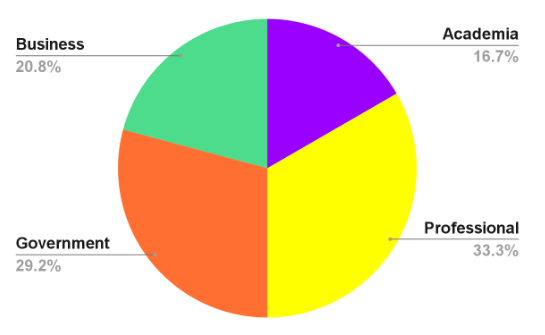
To date, the panel members of ICEF consist of 23 prominent personnel in Indonesia who come from various backgrounds such as: State institutions, business industries, utilities, think tanks, and experts. Prof. Dr. Kuntoro Mangkusubroto, the 10th Minister of Energy and Mineral Resources and Head of UKP4, is the Chairman of the ICEF Advisory Board. At the operational level, Fabby Tumiwa acts as the Executive Director of ICEF.
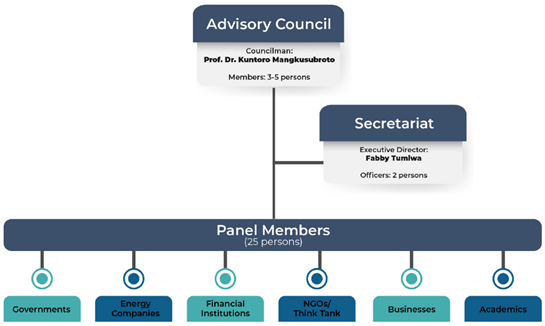
The panel members are (in alphabetical order):
| Chairman of Advisory Board | Prof. Dr. Kuntoro Mangkusubroto |
| Executive Director | Fabby Tumiwa |
| Panel Members | Affiliation |
| Achmad Friscantono | Executive Director of Indonesian Banks Association (PERBANAS) |
| Agus P Sari | CEO of Landscape Indonesia |
| Dr. Andy Noorsaman Sommeng | Associate Professor at the University of Indonesia |
| Dr. Arif Budimanta | President’s Special Staff in Economics |
| Bambang Harymurti | Commissioner of PT. Tempo Inti Media Tbk |
| Djoko Rahardjo Abumanan | Strategic Procurement Director 2 of PT. PLN (Persero) |
| F.X. Sutijastoto | Director General of New and Renewable Energy, and Energy Conservation, Ministry of Energy and Mineral Resources |
| Faisal Basri | Senior Lecturer at the University of Indonesia |
| Felia Salim | Member of the Board of Director of Indonesia Eximbank |
| Dr. Gigih Prakoso Soewarto | President Director of PT. PGN Persero. |
| Heru Prasetyo | School Advisory Council at the School of Business and Management (SBM) Bandung Institute of Technology |
| Hilmi Panigoro | President Director of PT. Medco Energi International Tbk |
| Prof. Dr. Irwandy Arif | Minister of Energy and Mineral Resources’ Special Staff in Mineral and Coal Governance |
| Michael Sumarijanto | Vice Chairman of the Indonesian Mining and Energy Society (BIMASENA) |
| Montty Girianna, PhD | Deputy of Energy Management, Natural Resources, and Environment, Coordinating Ministry for Economic Affairs |
| Murtaqi Syamsuddin | Independent Commissioner of PT. PLN (Persero) |
| Dr. Nirarta Samadhi | Country Director of the World Resources Institute (WRI) Indonesia |
| Nur Pamudji | Chairman of the Board of Expert at the Indonesia Solar Association (AESI) |
| Rida Mulyana | Director General of Electricity, Ministry of Energy and Mineral Resources |
| Rivana Mezaya | Lecturer at the School of Business and Management (SBM) Bandung Institute of Technology |
| Dr. Saleh Abdurrahman | Expert Staff to the Minister of Energy and Mineral Resources for Environmental & Spatial Planning |
| Prof. Suahasil Nazara, PhD | Vice Minister of Ministry of Finance |
| Tri Mumpuni | Executive Director of the Institute of Business and Populism Economic (IBEKA) |
| Dr. Widhyawan Prawiraatmadja | Senior Lecturer at the School of Business and Management (SBM) Bandung Institute of Technology |
The Indonesian Energy Transition Dialogue (IETD) 2024 is an annual dialogue forum organized by the Indonesia Clean Energy Forum (ICEF) together with the Institute for Essential Services Reform (IESR). IETD brings the spirit of being a dialogue agenda for policy makers, business people, experts and the public to exchange ideas on energy transition in Indonesia. This year, IETD will bring the spirit of Indonesia’s new leadership after the 2024 election which brings hope to accelerate the energy transition agenda at least in 5 years which can be a foundation stone in achieving the 2050 net zero emission target. This year’s IETD will present a multi-actor and cross-sector dialogue to voice a joint transition agenda as a form of collaboration that involves all parties in overcoming the climate crisis. With the theme “Delivering Just and Orderly Energy Transition”, IETD is expected to voice and discuss challenges, opportunities, and strategies that can be implemented in efforts to transition from the use of fossil energy to cleaner and more sustainable energy in a structured manner by prioritizing the principles of justice and natural balance.
What is IETD?
Since 2018, the Indonesia Energy Transition Dialogue is a forum for various actors in the energy sector to share their ideas and perspectives to realize the future energy transition in Indonesia. The event will provide you with a broad view of strategies and actions to achieve net zero emission targets. Taking place in Jakarta, IETD invites you to join both online and offline. Mark your calendar for October 7-9, 2024 and secure your participation immediately by following the registration process.
ICEF has organized the Indonesia Energy Transition Dialogue every year since 2018. IETD has consistently invited prominent speakers from Indonesia and Internationally up to Ministerial level. IETD has addressed energy transition issues from various perspectives, including technical, financial, social (just transition), and economic. IETD 2020 and IETD 2021 were organized in webinar format, while IETD 2022 was co-organized with the CASE project under Indonesia Sustainable Energy Week (ISEW).
Check ietd.info for more information
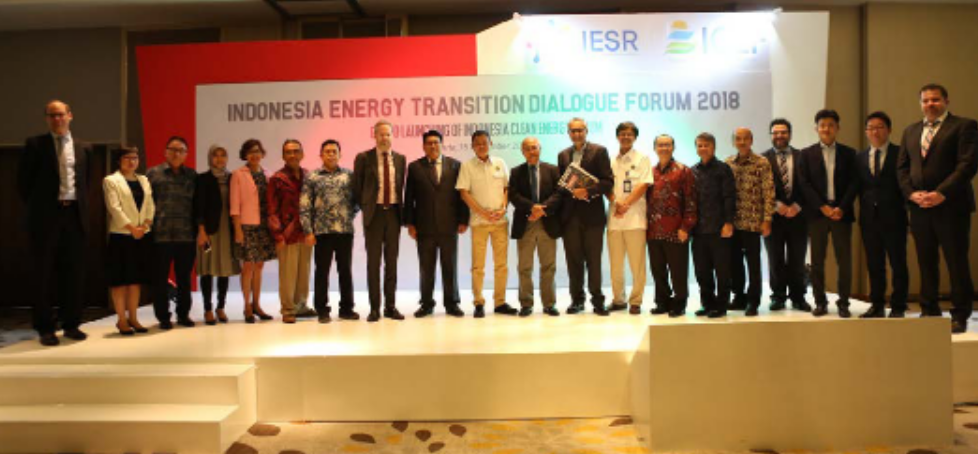
The inaugural launch of the first ICEF and IETD in 2018, attended by the Minister of Energy and Mineral Resources, H.E. Ignasius Jonan.
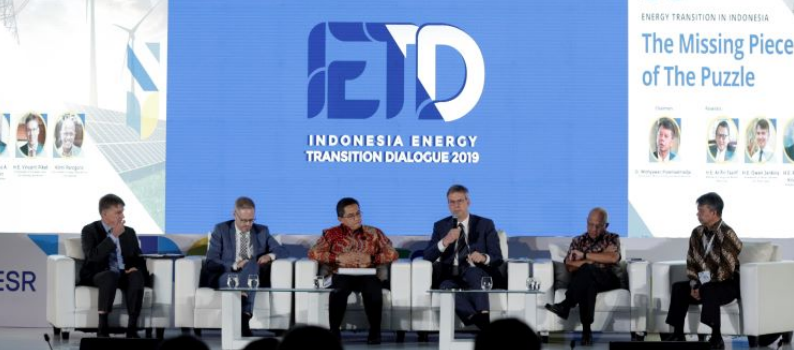
One of the high-level panel discussions involving the ambassadors of the EU, UK and Denmark, senior advisors of the Ministry of Energy and Mineral Resources and the CEO of Medco, chaired by Dr. Widhyawan Prawiraatmadja who is also an ICEF member.
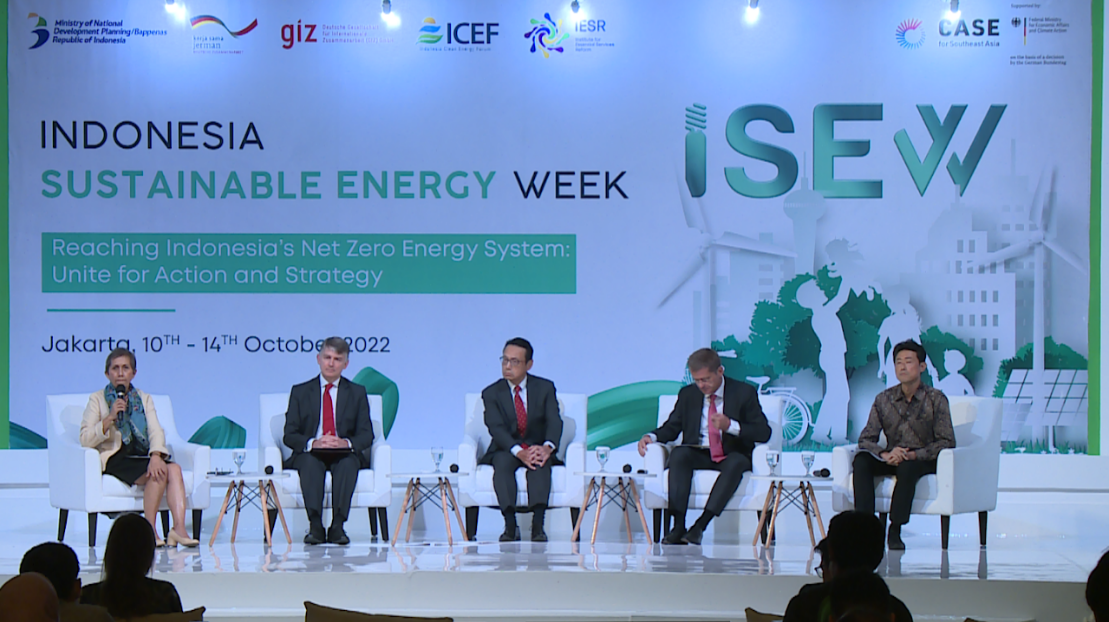
High-level panel discussion during IETD/ISEW 2022
